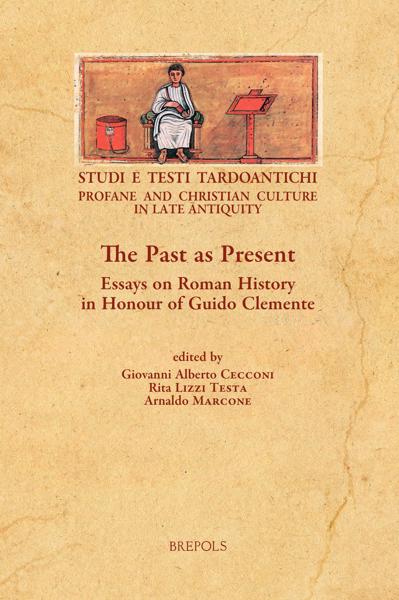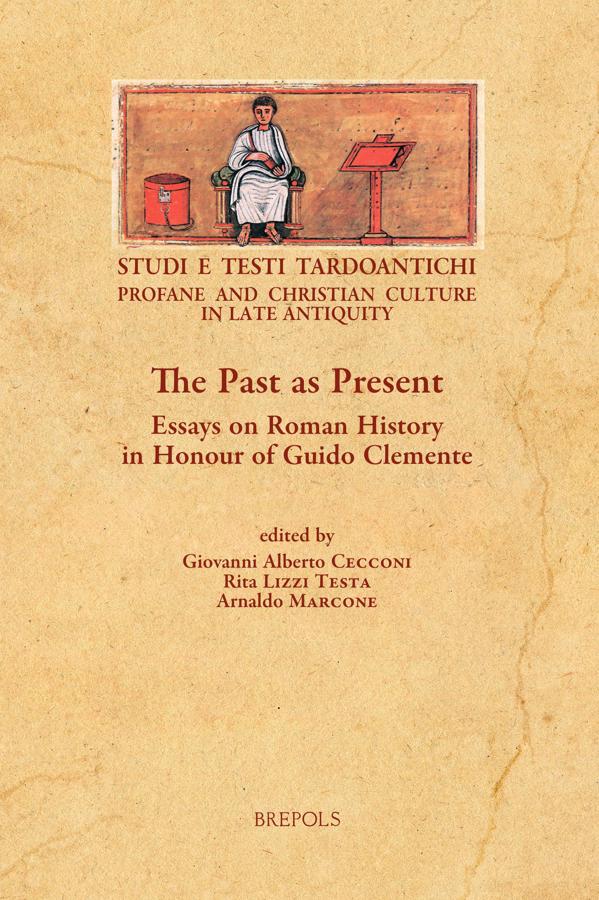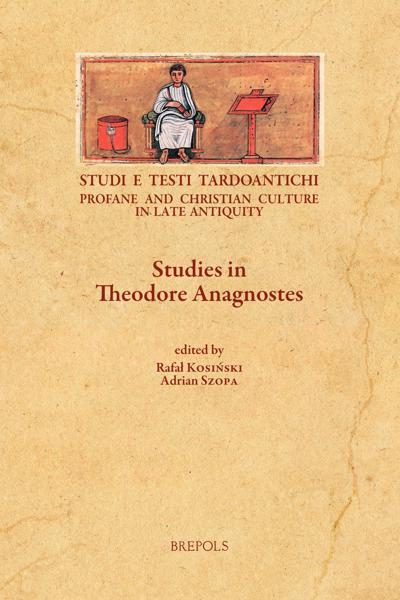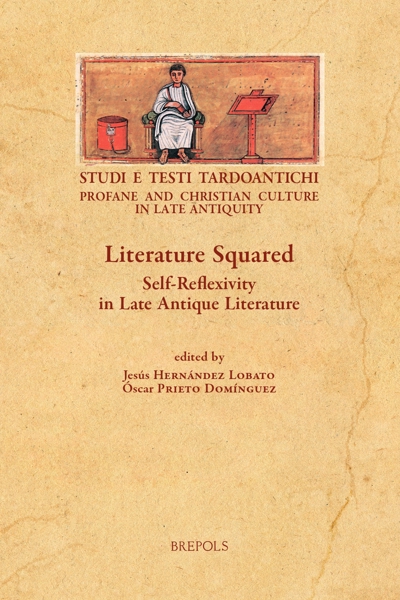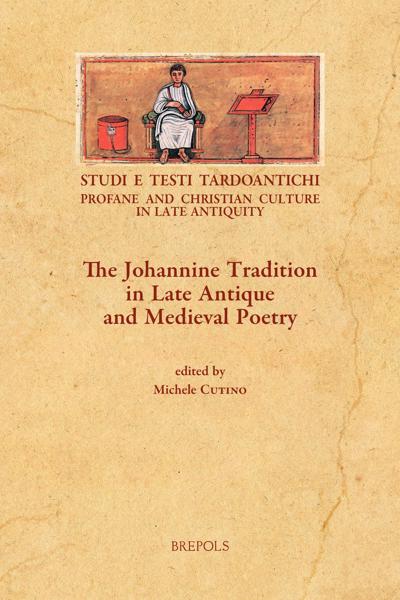
The Past as Present
Essays on Roman History in Honour of Guido Clemente
Giovanni Alberto Cecconi, Rita Lizzi Testa, Arnaldo Marcone (eds)
- Pages: 810 p.
- Size:156 x 234 mm
- Illustrations:24 b/w, 1 maps b/w
- Language(s):English, Italian, Spanish
- Publication Year:2020
- € 125,00 EXCL. VAT RETAIL PRICE
- ISBN: 978-2-503-58524-6
- Paperback
- Available
- € 125,00 EXCL. VAT RETAIL PRICE
- ISBN: 978-2-503-58525-3
- E-book
- Available
A multidisciplinary collection of essays on Roman history in honour of
prof. Guido Clemente
Rita Lizzi Testa studied in Florence, London (King’s College), and Princeton (Institute for Advanced Study). She taught at the University of Turin and is now Professor of Roman History at the University of Perugia, Italy. She published numerous articles on the Christianization and conversion of the Roman Empire, and is author and editor of several books on the governance of late antique towns, and on the conflict and dialogue among pagans and Christians in the Roman Empire.
Arnaldo Marcone studied at the Scuola Normale Superiore of Pisa and at the University of Pisa. He has taught at the University of Udine and he is now professor of Roman History at the University of Roma Tre. He was a fellow of the Institute for Advanced Study in Princeton. His main fields of research are the economic and social history of the ancient world, the Roman Empire and late antiquity, modern historiography of the ancient world and of its economic and social aspects in particular.
Giovanni Alberto Cecconi studied in Florence and Turin (post-doctorate), worked and taught in Paris (EPHE, Paris 8). He is professor of Roman History in Florence, Italy. He has published several books as an author and editor, as well as numerous articles on topics such as the administration of Roman Italy, Latin epigraphy, late antique religious and political history, Imperial bureaucracy, senatorial aristocracy, and on authors such as Symmachus and Cassiodorus.
This volume in honour of Guido Clemente collects essays by nearly 40 established and younger scholars from all over the world, who want to express their gratitude for prof. Clemente's direct or indirect teaching. While the essays included in the volume cover domains ranging from methodology and (the history of) historiography, over archaeology and epigraphy, to politics and religion, they all resort under the main theme of ‘the past as present’. This main theme is inspired by a prominent feature of Guido Clemente's scholarly work: the awareness that from the last centuries of the Roman Republic up until Late Antiquity, a sense of the past ‘as present’ marked the rhythm of everyday life and provided the key to understanding ongoing societal change.
Preface
List of illustrations
List of abbreviations
Un profilo di Guido Clemente (Giovanni Alberto Cecconi)
Bibliografia di Guido Clemente (Nicola Barbagli)
Historiography and Methodology
Il perdono degli Alessandrini: fortuna di un episodio di clemenza imperiale (Nicola Barbagli)
Da Rufino a Orosio: la battaglia al Fiume Freddo e l’eclissi della storiografia classica (Giorgio Bonamente)
The Present in the Past and the Past in the Present (Averil Cameron)
Il diritto, il mito e la rappresentazione simbolica nell’ermeneutica di Bachofen (Luigi Capogrossi)
Monarchia delle origini e regnum in Cicerone: tra passato e presente (Chiara Carsana)
Die keltische Ethnographie zwischen Poseidonios und Ammian (Maria Cesa)
Der Beitrag der Schüler Mommsens zur Erforschung der Geschichte der Stadt Rom (Werner Eck)
Mussolini: Ancient Rome on the Sea (Daniele Foraboschi)
The Darkening of the West: A Note (Ramsay MacMullen)
'Fine' della schiavitù antica: considerazioni inattuali a margine di un’ancora aperta discussione (Mario Mazza)
Hermann Strasburger (1909-1985) (Barbara Scardigli)
Cassiodorus’ Historiographical Plan (Giuseppe Zecchini)
Archaeology and Epigraphy
Les gaietés de la cohorte (Jean-Michel David)
The Economy of the Monastery of Lérins (c. 400-c. 460) (Matheus Figuinha)
Composite Constantine (Paolo Liverani)
A proposito di alcune indagini recenti sulla fiscalità dell’Impero romano tra Principato e tarda antichità (Elio Lo Cascio)
Gaio, Livio e la funzione esplicativa della storia (Digesto, I. 2. 1) (Dario Mantovani)
Food, Popinae, and the Emperor: Some Considerations on the Early-Imperial Policies on the Sale of Food (Annalisa Marzano)
Servi, liberti, colliberti, ancillae nella Sardegna romana: nota su possibili continuità, eredità e trasformazioni (Attilio Mastino & Maria Bastiana Cocco)
Per la storia edilizia di Roma nel IV secolo. Qualche contributo epigrafico (Silvia Orlandi)
La quaestio consolare del 138 a.C. per la strage della Sila (Bernardo Santalucia)
Rivisitazione di un’epigrafe tardoantica di Canusium (Marina Silvestrini)
Note topografiche sulla rivolta dei mercenari di Cartagine in Sardegna (240-237 a.C.) (Raimondo Zucca)
Las transformaciones del Senado en la antigüedad tardía (Hugo Zurutuza)
Politics and Religion
Late-Republican Theatre: A Source for Public Opinion (Andrea Angius)
Debt-bondage, Fides, and Justice: Republican Liberty and the Notion of Economic Independence in the First Century BC (Valentina Arena)
Episodi di guerra e lotte di potere in Italia nel III secolo d.C.: storia degli eventi alla vigilia dell’ordinamento provinciale (c. 235-285) (Giovanni Alberto Cecconi)
Iside e i vota publica nel IV secolo d.C. (Filippo Coarelli)
Reflections on the Foundation of Aelia Capitolina (Hannah M. Cotton Paltiel & Avner Eckner)
L’ultima rivolta ebraica e l’esercito romano tardoantico (Ariel S. Lewin)
The Bishop of Rome and the Ostrogothic Kings (Rita Lizzi Testa)
Privato consilio (Augusto, RG 1,1): una nota (Arnaldo Marcone)
Comment identifier un lieu de culte ? (John Scheid)
Saliae virgines: un lemma di Festo e i rilievi trionfali Medinaceli (Mario Torelli)
The Impact of the Kerygma on the Diaspora Communities: Political Aspects (Lucio Troiani)
Tiberius, the Legacy of Augustus, and the Shadow of the Republic: ‘Accession Debate’ and Beyond (Alexander Yakobson)
